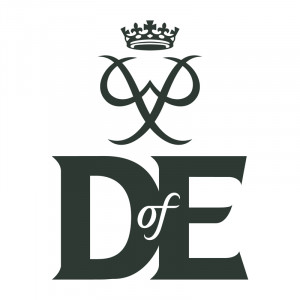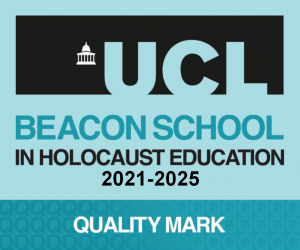Mental Health
The importance of promoting and supporting mental health and wellbeing
The government’s Plan for Change aims to break down barriers to opportunity. A key element of this plan is to improve support for children and young people’s mental health and wellbeing in schools. Department for Education (2021)
Good mental health and wellbeing improves standards in schools and helps pupils achieve and thrive in education, setting them up well for life and work.
Good mental health and wellbeing helps pupils:
- attend school
- develop key life skills, particularly social and emotional skills
- engage in learning
- achieve academically
- have better longer term outcomes, such as future employment
Embedding an evidence-based, holistic, whole school or college approach to mental health and wellbeing helps to achieve this.
Promoting Mental Health and Wellbeing at Belle Vue Girls’ Academy
At Belle Vue Girls’ Academy, we believe that every student deserves to feel safe, supported, and valued. Our vision is to provide life-changing opportunities through inclusion, aspiration, and high expectations, and we recognise that good mental health is the foundation on which these opportunities are built.
When students feel emotionally secure, they are more likely to attend regularly, engage positively, and fulfil their potential. That’s why mental health and wellbeing are at the heart of our inclusion, safeguarding, attendance, and behaviour strategies.
Why Mental Health Matters
Mental health is not just a pastoral issue; it’s a learning one. The Ofsted 2025 Framework reinforces the importance of personal development, behaviour, and attitudes, and highlights the role of schools in supporting students’ mental health.
At Belle Vue, we take a proactive, whole-school approach that promotes wellbeing for all and provides targeted support where needed. We know that attendance, behaviour, and learning outcomes improve when students feel cared for and understood. Our aim is to ensure that every student feels empowered to seek help, express themselves, and build emotional resilience.
Our Approach in Action
We have developed a comprehensive programme of support and education that places mental health and wellbeing at the centre of school life:
- Safe Spaces such as the Hub and A21 – calm, nurturing environments designed to help students self-regulate, reflect, and receive bespoke SEMH support.
- SEMH Lessons within Thrive and Nurture Groups – targeted sessions developing emotional literacy, coping skills, and positive self-esteem.
- Place2Be Counsellor – on-site, providing one-to-one counselling and therapeutic interventions for students who need specialist support.
- Youth in Mind (YIM) and Body Image Courses – promoting confidence, self-awareness, and a healthy relationship with self and others.
- A Proactive Personal Development Curriculum – covering emotional wellbeing, resilience, relationships, and mental health awareness through age-appropriate learning.
- Wellbeing Ambassadors – empowering students to lead, listen, and support peers, promoting kindness and positive mental health across the school.
- Assemblies and Guest Speakers – inspiring our community with real-life stories that normalise conversations around wellbeing, self-care, and growth.
The Role of Our SEMH Teaching Assistants
Our Social, Emotional and Mental Health (SEMH) Teaching Assistants are specially trained to support students who may find aspects of school life challenging due to emotional, behavioural, or mental health needs.
They work closely with the SENDCo, Inclusion Team, and Safeguarding Leads to provide consistent, compassionate care.
SEMH teaching assistants provide:
- 1:1 and small-group interventions focused on self-regulation, resilience, and confidence-building.
- In-class support, helping students to engage positively in learning.
- Mentoring and check-ins, giving students a trusted adult to talk to during difficult moments.
- Guidance in the Safe Spaces Hub and A21, supporting reflection and reintegration following periods of emotional distress.
- Liaison with families, ensuring joined-up communication and consistency of support.
- Early intervention, identifying triggers and supporting staff to respond proactively to behaviour linked to emotional need.
Their compassionate approach helps students develop coping strategies, improve attendance, and rebuild confidence — all essential ingredients for success.
Working in Partnership and Signposting
We know that mental health support extends beyond the classroom. That’s why we work in close partnership with CAMHS, Children’s Trauma Therapy, and other external agencies to ensure early intervention and specialist care where needed.
Students are also signposted to trusted digital wellbeing platforms and apps such as Kooth.com and websites such as Young Minds, ensuring they can access confidential support at any time.
Find Help With How I'm Feeling | Advice For Young People | YoungMinds
Papyrus UK Suicide Prevention | Prevention of Young Suicide
Home Page - Bradford District Care NHS Foundation Trust
Body Image Coach, Ages 11-25 | Confidence & Self-Esteem Support
The UK's Eating Disorder Charity - Beat
Shout: The UK's free, confidential, 24/7 mental health text service | Shout 85258
About Winston's Wish | Childhood Bereavement Charity | Winston's Wish
Our Whole-School Commitment
Mental health and wellbeing are everyone’s responsibility at Belle Vue. Our whole-staff approach includes:
- A dedicated Mental Health Lead, two Mental Health and Wellbeing Champions, and several Mental Health First Aiders.
- Regular check-ins between Pastoral Managers, Academic Leaders, Inclusion Staff, and Safeguarding Leads to ensure no student is left unseen or unsupported.
- Access to our School Nurse and Safer Schools Officers for advice, care, and guidance.
- Ongoing staff training to build confidence in recognising and responding to signs of poor mental health, ensuring our support remains compassionate, informed, and effective.
Our Personal Development Curriculum
Our commitment to wellbeing has a tangible impact across our school community. Students feel safe, connected, and ready to learn. Attendance has improved, relationships have strengthened, and our students demonstrate resilience, empathy, and a strong sense of belonging.
Through our inclusive approach, we are living our vision every day:
“To create life-changing opportunities through high expectations, positive relationships, and a culture of inclusion and diversity.”
At Belle Vue Girls’ Academy, mental health is not just something we talk about; it’s something we nurture, protect, and prioritise.
- They planned and delivered student-led assemblies to year groups to mark International Day of People With Disabilities and have also delivered assemblies on online safety and wellbeing as well as anti-bullying. They have also supported in The Hub with events such as World Mental Health Day.
-
BVGA students have worked with Bradford Citizens on a mental health action team and cross-trust as BDAT Wellbeing Ambassadors. They have delivered a wellbeing session as part of the Bradford Citizens Together event. The BDAT Wellbeing Ambassadors are working on a Reading for Wellbeing project with other BDAT primaries and secondaries. They meet annually at a BDAT Student Wellbeing Ambassador Conference.
-
Wellbeing Ambassadors have worked with other BDAT schools to produce radio shows which have been broadcast on BCB Radio.
 Our Zara Sports Centre
Our Zara Sports Centre









